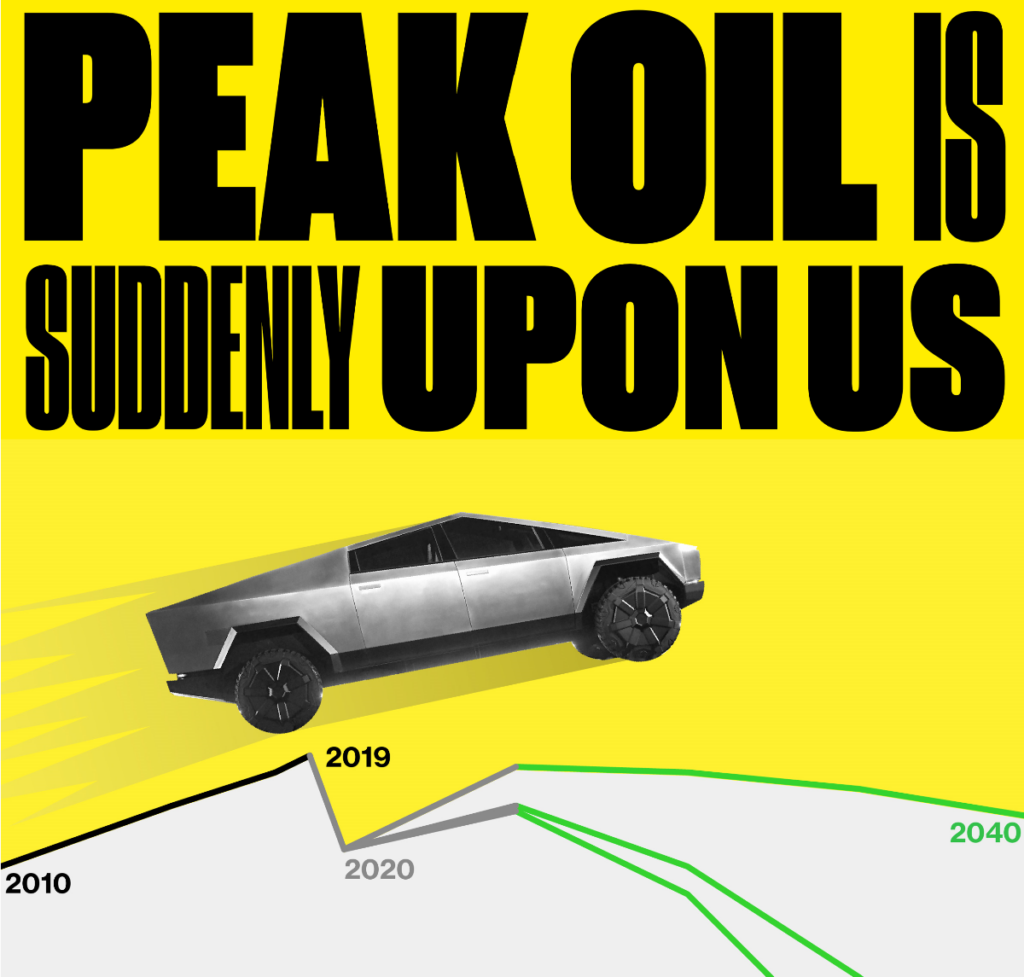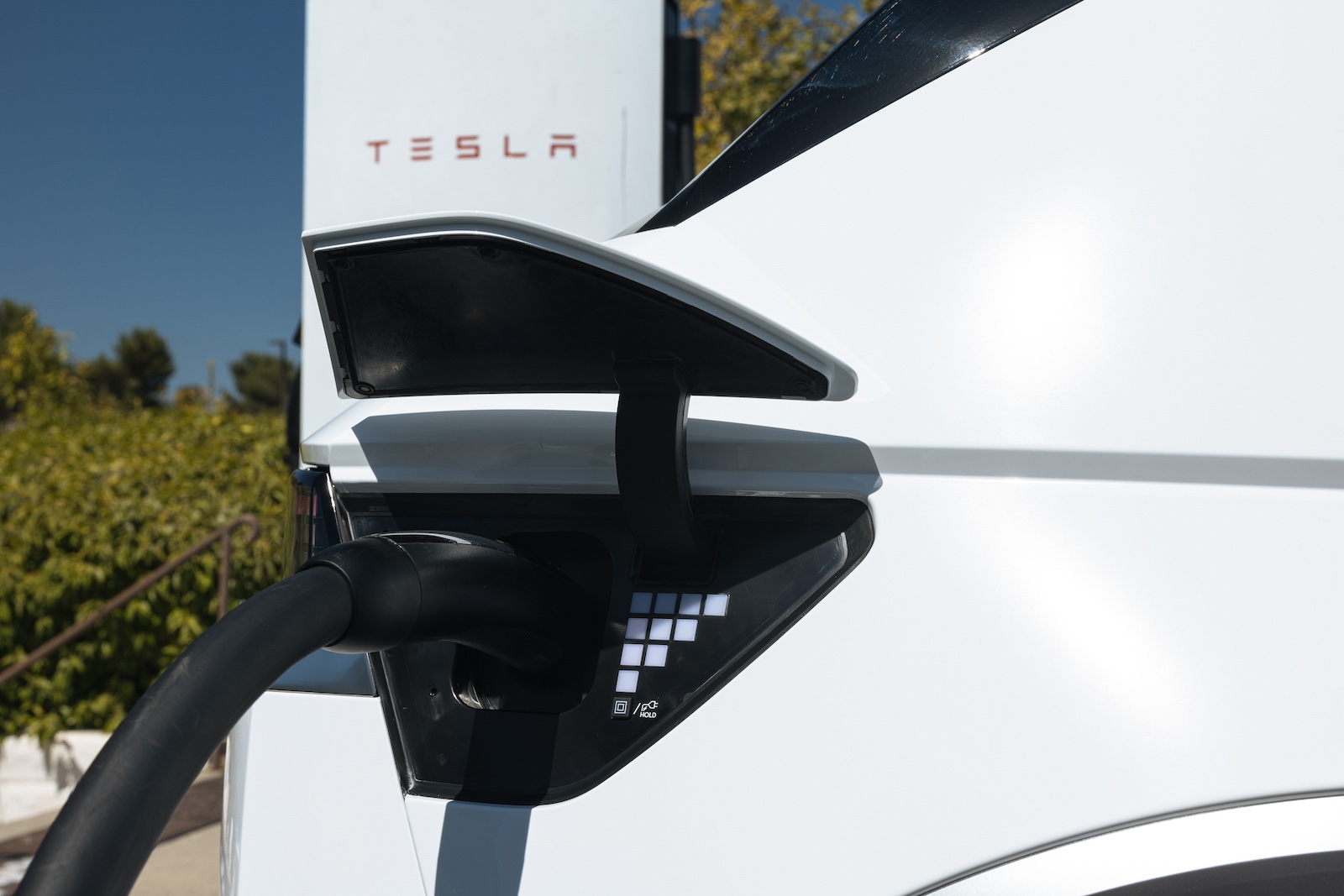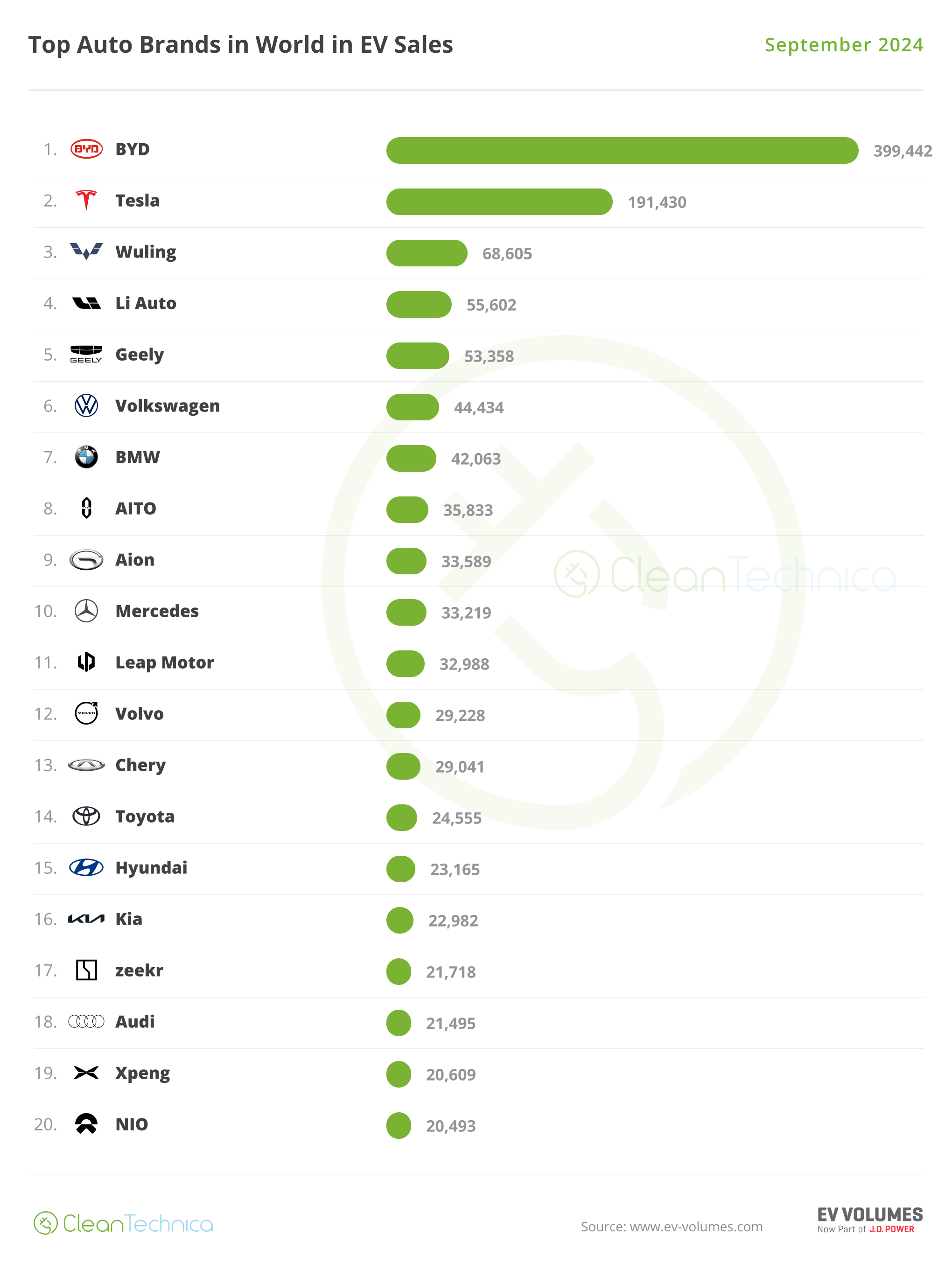Courtesy of ENERGYminute
See more articles and infographics from ENERGYminute HERE
The International Energy Agency (IEA) looks ready to announce that peak oil will occur before the end of the decade. Will the western world’s favorite energy-focused intergovernmental organization get it right?
What happened: On Tuesday, the Financial Times published an op-ed penned by IEA Executive Director Fatih Birol. The letter served as a teaser for the organization’s flagship World Energy Outlook report set to be released next month.
The report will allegedly announce that for all three fossil fuels – coal, oil, and natural gas – demand is set to peak in just a few years.
Behind the call: For the IEA, peak oil will be driven by the growth of electric vehicles around the world, especially in China. On top of that, demand for electric buses, two-wheelers, and three-wheelers is growing strong.
- The Paris-based organization also views gas demand reaching its zenith later this decade with “The Golden Age of Gas” ending, as renewables increasingly outpace gas for producing electricity.
But there’s a caveat
The prediction is based solely on government climate policies. Released on the same day in the same newspaper, the IEA also said believes that a backlash on climate policies, like those seen in the UK and Germany this summer, could “easily” extend the life of fossil fuels.
And another: Predicting peak oil is notoriously hard.
Going back just three years to 2020, many reputable organizations announced oil demand had already topped. Some of the headlines:
- Foreign Policy: “After Decades of Wrong Predictions, Oil May Finally Be Peaking”, July 2020
- CarbonBrief: “Analysis: World has already passed ‘peak oil’”, September 2020
- Bloomberg: “Peak Oil is Suddenly Upon Us”, December 2020
- The Washington Post: “Peak Oil Has Finally Arrived. No, Really”, September 2022
No, not really.

Courtesy of Bloomberg circa December 2020
And calls for the end of petroleum demand growth go back even further. In 2010, a study published by Kuwait University figured the peak would happen in 2014.
- It didn’t.
Neither did a call published by the University of Oxford in the same year estimating a 2015 peak.
Sense check: There is reason to think that this time may be different. Electric vehicles will eventually erode demand for oil and renewables continue to grow at an incredible pace.
- According to the IEA, electric vehicles made up 14 percent of all new cars sold in 2022, up from 9 percent in 2021, and 5 percent the year before that.
Yes, but: There are also reasons it might just be more of the same. Last month, global oil demand hit an all-time high, averaging 103 million barrels per day and one of the largest year-over-year builds ever.
Meanwhile, Ford just announced yesterday it is shifting focus away from all-electric vehicles as EV sales were slower than expected, and unsold EVs from almost all dealers are piling up on dealers’ lots.
- A new study from the US Energy Information Administration found that luxury EVs were making up an increasingly larger share of new electric vehicle sales. This suggests regular buyers just aren’t going electric.
And there’s developing economics: If the average person in India and Africa, two of the fastest growing regions of the world, were to increase their oil consumption to just 4 barrels per year (roughly where China is today), oil demand would increase by 20 million barrels per day.
- For context, the average North American uses on average 20 barrels of oil per year.
Bottom line: To give the IEA some credit, it has been wary to call peak oil in the past… even in 2020, when it was as trendy as baking sourdough bread. We’ll end this with an OG peak oil call:
“Petroleum has been used for less than 50 years, and it is estimated that the supply will last about 25 or 30 years longer.” – US Geological Survey (1909)
Share This:




